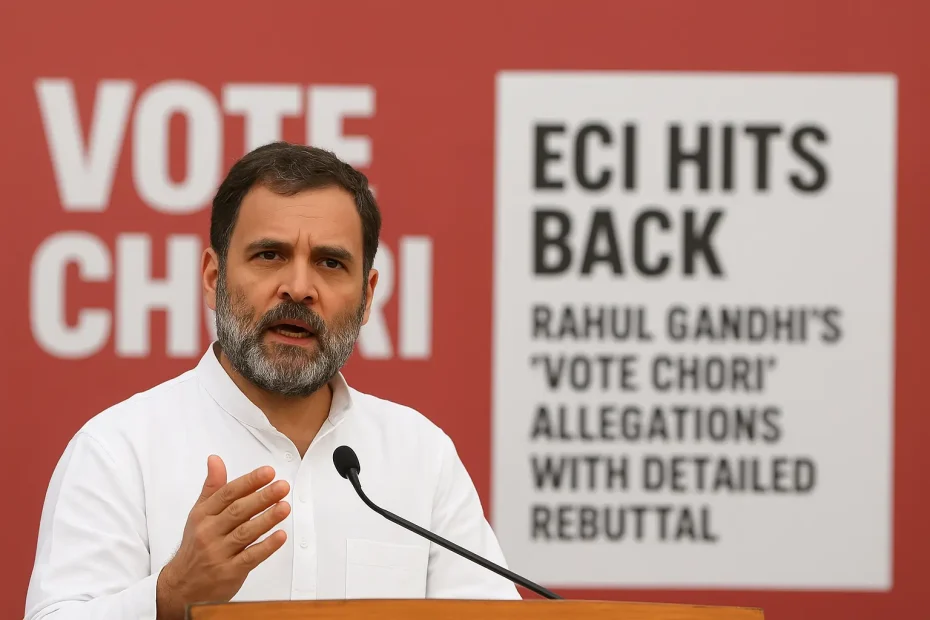Rahul Gandhi Raises Sharp Questions at Bengaluru Rally
At the ‘Vote Adhikar Rally’ in Bengaluru on Friday, Congress leader and Leader of Opposition in the Lok Sabha, Rahul Gandhi, took aim at the Election Commission of India (ECI), accusing it of bias, tampering, and shielding the ruling party. While addressing party workers and supporters, Gandhi claimed that he had uncovered what he described as an “atom bomb” of evidence, thereby pointing to large-scale electoral malpractice in the country.
Furthermore, Gandhi specifically cited alleged anomalies in states such as Maharashtra and Karnataka. According to him, the electoral rolls contained “one crore mystery voters.” In addition, he claimed that officials were destroying CCTV footage of polling stations. Moreover, he alleged that agents were adding thousands of fake voters, while the poll body simultaneously refused to share crucial voter-related data with the opposition. As a result, Gandhi argued, these actions severely undermined the transparency and fairness of India’s democratic process.
The Five Questions to the Election Commission
Through a post on social media platform X, Gandhi directly challenged the ECI with five pointed questions, demanding transparency and accountability. His questions were:
- Why isn’t the opposition receiving the digital voter list? What is the ECI hiding?
- Why is CCTV and video evidence being erased, and on whose orders?
- Why is fake voting and tampering with voter lists happening?
- Why are opposition leaders being threatened and intimidated?
- Has the ECI now effectively become an agent of the BJP?
These questions, presented to a large public audience, were part of Gandhi’s broader attack on the credibility of the electoral process.
ECI Responds with #ECIFactCheck
The Election Commission reacted swiftly. Resharing Gandhi’s post with the hashtag #ECIFactCheck, the poll body dismissed the allegations as “misleading.” In a strongly worded statement, the ECI accused Gandhi of making serious public claims without following due process.
The ECI said that no one had filed an official complaint through the legally prescribed mechanisms, and no one had submitted any credible evidence.
The commission urged individuals to formally raise allegations of this nature so investigators can examine them, rather than airing them solely at political rallies or in press conferences.
Demand for Declaration or Apology
Taking an assertive stance, the ECI challenged Gandhi to “either sign the declaration on issues” he raised during his Thursday press conference or “apologise to the nation” for spreading misinformation.
The commission’s statement underscored its commitment to maintaining the integrity of elections and insisted that it operates independently of any political influence.
Origins of the Dispute
The controversy stems from Gandhi’s press conference a day before the Bengaluru rally. There, he alleged that the ECI was complicit in “vote chori” (vote theft) and enabling large-scale irregularities in voter rolls and electoral conduct.
His claims drew sharp political reactions, with the ECI swiftly moving to protect its image and reassure the public of its impartiality.
Political and Public Reactions
The exchange has intensified the ongoing political battle between the Congress and the BJP ahead of upcoming state and national elections.
While Congress supporters have echoed Gandhi’s concerns about electoral transparency, BJP leaders have criticised his statements as baseless and damaging to public trust in democratic institutions.
As the war of words escalates, all eyes remain on whether Rahul Gandhi will take the ECI’s offer to submit a formal declaration of his claims — or if the dispute will continue to play out in the court of public opinion.
